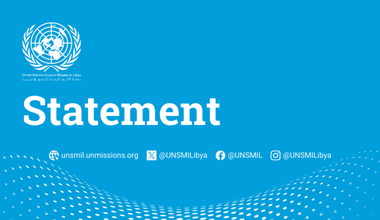Workshop: Rapid city profiling and monitoring system for Libya
UN-Habitat, UNFPA
22 February 2017 – Tunis – The United Nations Population Fund (UNFPA) and the United Nations Human Settlements Programme (UN-Habitat) launched the Programme “Rapid City Profiling & Monitoring System for Libya” (CPMS) as part of their support to the national and local authorities in Libya.
Funded by the European Union under the Instrument contributing to Stability and Peace, the Rapid City Profiling and Monitoring System Programme is developed and implemented jointly with the Libyan Bureau of Statistics and Census, Urban Planning agency and six municipalities (Benghazi, Al Kufrah, Awbari, Al Jifarah, Sirte, Sebha), and in close coordination with relevant ministries, UN Agencies, and International and national NGOs.
The project aims at establishing a comprehensive Urban Information and Analysis framework based on indicators linked to public basic services, local economy, living standards and perceptions. The project will build the capacity of local actors to evaluate and monitor the impact of the crisis on infrastructure and people in six cities and inform humanitarian, early recovery and stabilization responses in each of the targeted cities.
Ultimately, the project will increase the level of understanding from the international, national and local stakeholders as regards to the impact of the crisis in urban areas and provide evidence-based planning information to support the response from the humanitarian and development community.
During the launching workshop, Libyan and international participants will discuss and agree on the project concept and methodology for identifying the indicators and collecting data in Libya. They will also develop the project work plan and agree around coordination and implementation arrangements in order to achieve the project’s objectives for this year.
In her opening speech, Mrs. Maria Do Valle Ribeiro, the United Nations Resident Coordinator, has pointed out the importance of the City profiling system to obtain data for defining priorities in the municipalities and work closely with local authorities. She also praised the partnership between UN-Habitat, UNFPA, the European Union and different Libyan institutions and municipalities to respond to people needs.
Mr. Edouard Belloncle, Regional Cooperation Officer-Maghreb, also acknowledged the importance of ensuring stabilization efforts in conflict times and expressed hope, that the project will identify the most urgent interventions based on the needs of each city. He also highlighted the importance of disseminating the project results with relevant stakeholders and international community to ensure full effectiveness of the project.
Mr. Dyfed Aubrey, Director of the UN-Habitat Regional Office for Arab States added “Along with MoP, BSC, municipalities and the UN related sectors, we look forward to establishing a system of delivering multi-sectoral area-based analysis of cities and neighborhoods that will inform the identification of key humanitarian actions, and recovery strategies that can improve the wellbeing of Libyan Citizens. Through partnership with UNFPA, we are able to understand the concerns of urban populations through the household assessments and link this with the functionality of urban services in order to provide a comprehensive assessment of the city. We are as ever grateful to the European Union for its financial support of this important initiative.
Dr. Georges Makram GEORGI, UNFPA Libya Country Director, emphasized on the importance of continuous monitoring of household needs and people coping mechanisms to adapt with the challenging context in Libya. These data will help both humanitarian and stabilization actors better plan their responses and put the local community at the driving seat of the planning and response processes.
 United Nations Peacekeeping
United Nations Peacekeeping UN
UN












